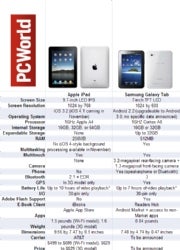The most recent federal disclosure forms offer a stark reminder of Microsoft
Corp.'s mighty Washington presence: The software giant's tab of almost $2
million for the third quarter alone nearly equaled the amount its rival Google
Inc. spent in the first nine months of the year.
But Google already has spent more on lobbying this year than it did for all
of 2007 as the Internet search company starts to emerge as a formidable player
in D.C. lobbying circles.
The lobbying muscle of both companies was on full display in recent months as
Microsoft and Google battled over Google's plans to sell some of the online
advertisements that appear alongside search results on Yahoo Inc.'s Web site.
Google and Yahoo entered into the partnership in June in an effort to keep Yahoo
out of Microsoft's hands.
But Google walked away from the deal last week in the face of an antitrust
challenge being prepared by the Justice Department. That retreat marked a key
victory for Microsoft, which had mounted a major lobbying and public relations
offensive to convince the government to block the agreement.
It's unclear whether the outcome would have been different without
Microsoft's efforts as it was hardly alone in opposing the deal. Some of the
nation's biggest advertisers also had warned that the partnership would drive up
the cost of online advertising and cement Google's control over the market.
Microsoft had "the tail winds working in its favor," said Stanford Washington
Research Group analyst Paul Gallant. But he added: "Microsoft played this about
as well as it could be played."
Jeff Chester, executive director of the Center for Digital Democracy, a
consumer advocacy group that opposed the deal, went even further. "It is
possible that the Justice Department might have come to a different conclusion"
had Microsoft not become involved, he said.
Indeed, it has escaped no one's attention that the Bush administration has
allowed many big, controversial mergers to go through, including Google's recent
purchase of online ad service DoubleClick.
While Microsoft and Google were on opposite sides in the battle over the
Yahoo partnership, they have found themselves aligned in other big lobbying
fights. The two companies led a recent push to open up "white spaces" -- the
unused, unlicensed spectrum between television channels -- to deliver wireless
Internet access. That effort paid off when the Federal Communications Commission
approved the use of white spaces for broadband last week.
Google and Microsoft also have been key proponents of reforming U.S. patent
laws to address a mounting backlog of applications and halt the increase in
infringement litigation often driven by poor-quality patents.
In both cases, the companies have faced off against other powerful industries
with deep pockets and well-established lobbying arms in Washington. In the white
spaces fight, Microsoft and Google took on the National Association of
Broadcasters. In the patent reform dispute, they have battled the nation's big
pharmaceutical companies and other industries that want to leave the existing
system intact.
Microsoft has had a presence in Washington for years -- which it beefed up
significantly after becoming the target of a major Justice Department antitrust
suit in the late 1990s.
The Redmond, Wash.-based company spent $6.9 million on federal lobbying
during the first three quarters of this year, compared with $9 million in all of
2007, according to disclosure forms. The company easily outpaced Google and
Yahoo combined in the third quarter -- spending $1.98 million, compared with
Google's $720,000 and Yahoo's $570,000.
But Google is catching up. The company spent $2.1 million on federal lobbying
during the first nine months of this year, compared with $1.5 million for all of
2007. And while not all big technology companies have chosen to play active
roles in the nation's capital, Google wants to be a key participant.
"Google clearly appreciates the importance of engaging in Washington" since
it has a lot at stake in number of critical policy debates, said Ed Black,
president and chief executive of the Computer & Communications Industry
Association. "Google has been ramping up at a rapid pace for a Silicon Valley
firm."
The Mountain View, Calif.-based company opened its Washington office in 2005
and has hired people on both sides of the aisle to staff it. It has made an
active effort to engage public interest groups and has hosted seminars on a
range of issues at the Washington office. In addition, Google Chief Executive
Eric Schmidt endorsed President-elect Barack Obama during the campaign.
Contributions by Google's political action committee totaled about $282,000
during the 2008 campaign, according to the Center for Responsive Politics. But
that tally again was easily outpaced by Microsoft's $1.7 million during the same
period.
Chester remains concerned that much of the corporate lobbying takes place
behind closed doors -- even if it involves matters that have major implications
for the public, such as the fight over the Google/Yahoo partnership.
"The issues of paramount importance to the public and the economy often get
played out as fights between corporate behemoths," Chester said. "It's shameful
that these digital giants have engaged in business-as-usual politics. It shows
that our Internet policies are up for sale regardless of the consequences for
consumers and competition."
 The Android vs. Apple battle has officially made its way into the world of tablets.
The Android vs. Apple battle has officially made its way into the world of tablets. *According to manufacturers' estimatesSo how exactly does Samsung's Galaxy Tab differ from the iPad? Check out this comparison chart for a side-by-side glimpse at the two devices' specs and see for yourself. (Click image to zoom.)
*According to manufacturers' estimatesSo how exactly does Samsung's Galaxy Tab differ from the iPad? Check out this comparison chart for a side-by-side glimpse at the two devices' specs and see for yourself. (Click image to zoom.)


